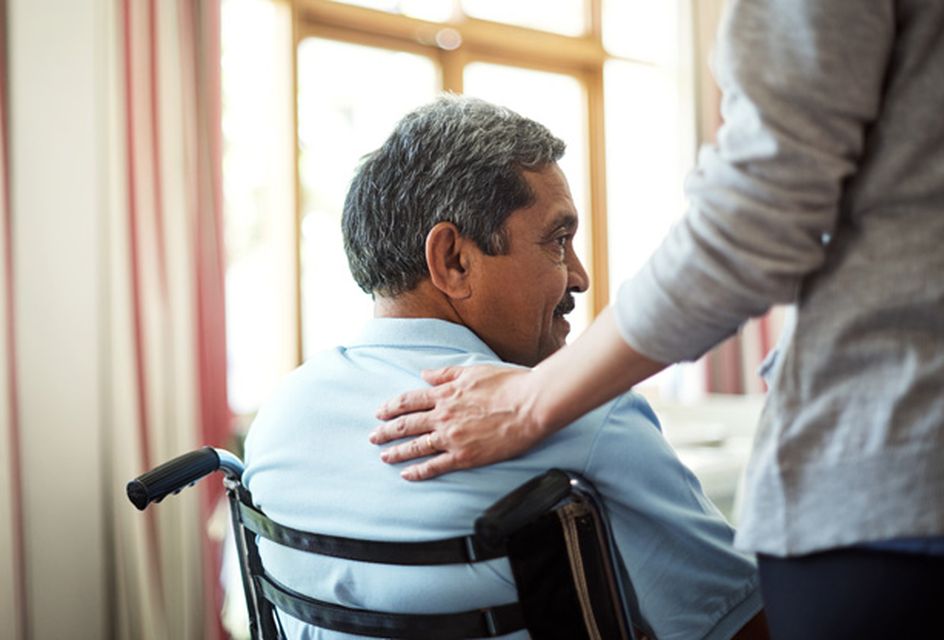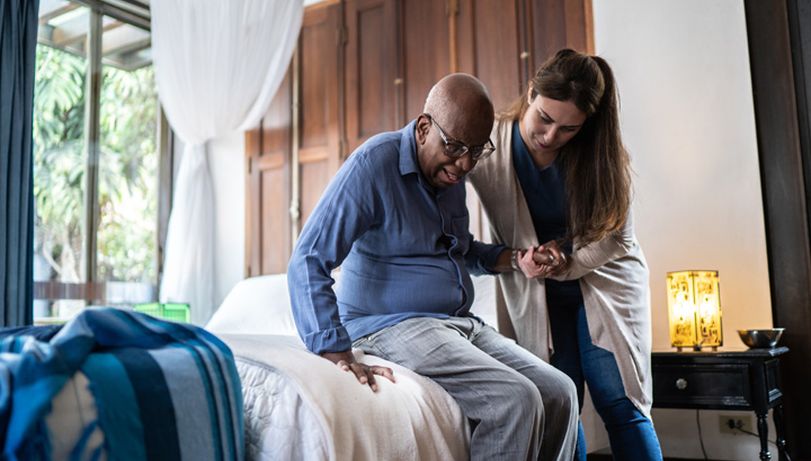Caring About Health
RSPH has published a new report looking at the health outcomes of adults using social care services and how the system can have a more active role in health improvement.

Social care is one of our largest public services, but the system is falling short in supporting the health outcomes of the adults using it.
Years of budget cuts and underfunding has made it unfit to meet the needs of our population. We know that many people access social care support for a range of conditions and disabilities, and especially as we age this support is important for us to be able to live independently and have a good quality of life. But inadequacies in the system mean that unpaid carers often have to fill the gap by providing care for their family members.
Social care needs to be more than a safety net. It needs to be a platform for wellbeing, inclusion and independence which works not just with the individual but with their families and the wider community. We want to see a social care system that is resilient and focuses on improving quality of life and providing equity.
In practice, this would reduce the pressure on the NHS, support community-based care, tackle health inequalities, and drive local economic development through the care workforce and voluntary sector.
RSPH findings from CQC data show that just
of care services do a good job of supporting people who use social care to live healthier lives
Recommendations
- Care staff should be given robust training in health promotion.
- As part of this training, and to support the delivery of early health interventions, we call on the government to roll out delegated healthcare activities to carers, as has been called for by Skills for Care.
- To reduce the burden on individual mental wellbeing, the process of accessing care needs to be made easier for individuals and families.
- Supporting prevention and delivering true personalised care means that care packages should be funded and delivered in line with individual needs, starting with the abolition of 15-minute care visits.
- In order to for other changes to be embedded, the Government needs to take action to improve pay and working conditions for the care workforce.
What we heard – and what needs to change
|
Area |
What we heard |
RSPH will |
Government should |
|
Health as part of social care |
Carers often provide vital health support, but this is unrecognised and under supported |
Promote and train care workers as part of the wider public health workforce |
Include social care as part of their planning for preventative health services |
|
Training for staff and carers |
Training is inconsistent, and staff turnover due to poor conditions means expertise is often lost |
Advocate for and provide staff with consistent training with public health content |
Introduce a national core training offer, link training to progression, and ensure providers can retain staff |
|
Early intervention |
Carers often identify warning signs of health problems but aren’t supported to intervene themselves or make referrals into health services until a crisis point is reached |
Support councils to embed prevention into care services, and support new neighbourhood health services to integrate social care and public health |
Connect care staff and carers to formal health services, ensuring they can make referrals at the right moment |
|
Mental health and wellbeing |
People receiving and providing care are struggling with emotional strain and anxiety, with staff often struggling due to overwork and low pay in an emotionally demanding role |
Promote training and peer support for staff and carers, and work with care providers to support the wellbeing of their staff |
Invest in mental health support for care staff and unpaid carers, and embed mental health training so staff can deliver mental health interventions |
|
Personalised care |
Carers and people who use social care feel that services often don’t allow for them to receive support that meets individual needs |
Join with the social care sector in calling for fair pay and opposing rushed visits |
End 15-minute care visits, and ensure that funding allows genuine coproduction of care plan |












